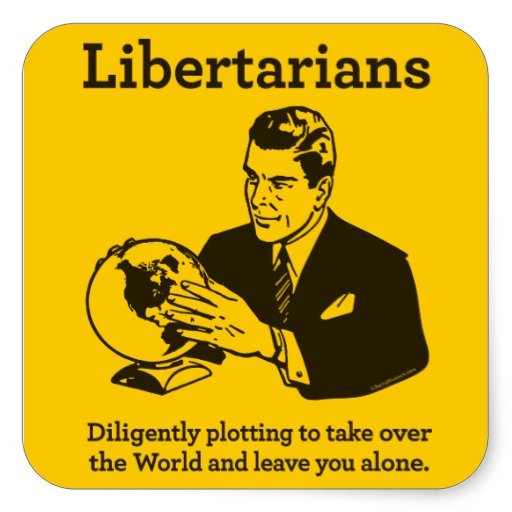How to Win Every Argument: Libertarianism

This is the first post in a series about philosophy - mostly political philosophy. I am going to put forward what I think is one of the strongest arguments for libertarianism. It is defined via Robert Nozick's famous book, Anarchy, State, and Utopia.
[If this is your first time to "How to Win Every Argument, then this bit of background should help. I explicitly use deductive logic or Bayesian probability theory in each clearly stated argument. Doing so requires that anyone who disagrees must attack one of the claims and can't change the subject without committing the red herring fallacy. This won't make you popular at parties, but it has the power to shut down most people. Knowledge may be power, but logic surely is.]
Back to Nozick, argues for a "minimal state". The minimal state is one that is limited to protection from theft, fraud, harm etc. Any use of wealth or power by the state for any other purpose violates peoples rights. So, the minimal state violates rights, if it redistributes wealth, creates welfare programs, interferes in private enterprise. Basically, everything besides protecting the security of the individual must be left to the private sphere.
One of Nozick's most insightful critics, GA Cohen, helped clarify the argument. Cohen believed that Nozick relied wholly on the principle of self-ownership. This principle merely states that you have the same ownership rights over yourself that you would have over a chattel slave. What ever rights someone thought they had over others, you have all those rights over yourself.
Cohen also pointed out that Nozick's theory of acquisition imagines a world where people originally acquire ownership rights over property that is unowned by anyone else. In doing so, their rights of self-ownership extend to private property. Since one has these rights, when two people exchange goods the only way to respect each persons self-ownership is through voluntary exchange.
This is pretty brief, but we're ready for the argument:
- Each person possesses an inalienable right of self-ownership.
- The only way to protect each person's self-ownership is through property rights that occur through original acqusition or voluntary transfer.
- Only a minimal state ensures the protection of property rights occur through original acquisition or voluntary transfer.
- So, only a minimal state protects each person's self-ownership.
Now- Let's see how you win with this argument. Suppose that someone rejects (1). You can respond with the Cohen's "eyeball lottery" example. It goes like this, suppose that we don't own ourselves with the same rights as we own property. If so, then there wouldn't be anything wrong with the state redistributing one of your good eyes to the blind.
Suppose they go after (2) - the objection would be that some other mechanism for attaining private property (and yes, even Marxists believe in private property of some kind) would be through something besides original acquisition or voluntary transfer. However, any other form of property acquisition requires the use of force and, thereby, violates the principle of self-ownrship.
Premise (3) is the easiest - A state that does not interfere with people's property, but does protect their individual rights is, by definition, Nozick's minimal state. As an aside, a stipulative definition only clarifies your terms and does not depend on common usage. For that reason, it is a mistake to make an objection to it.
So there you go - If you're a libertarian, you can win that argument every time. If you're not....let me know where you think it fails.
One could argue that private companies or individuals could provide services of protection of property rights much cheaper and more efficiently than a centralised government.
I wish that I had joined steemit earlier @thales or I would have resteemed this post to my own page.